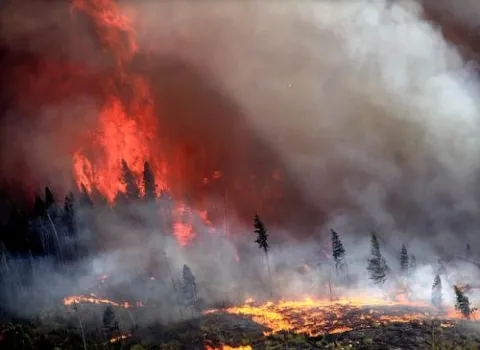Stickpin Fire - suffering the consequence of US budget priorities
The majority of the last two weeks smoke and ash in the West Kootenays is the result of the huge 'Stickpin Fire' burning out of control. With utmost respect to the many brave and dedicated people, from both sides of the border, fighting this out of control blaze, it is worth looking at the differences between the way our two countries manage wildfires. According to sources within BC Wildfire Service, there are significant differences in the way BC and Washington State manage forest fires. In the first instance, fire control south of the border is much more labour intensive, as might be expected, they have far greater populations relative to forests than we do. In the second, the area just south of the border in the West Kootenays is, for the US, about as remote an area as you can find outside of Alaska. In other words, not as high a priority as, for example, the Hollywood Hills. Relative to the rest of BC, we who live just north of the border live in one of the most densely populated and developed areas of the province (outside of the lower mainland). Politics aside, it is pretty clear that the BC Government has an open-ended budget to fight wildfires. In Washington State, sadly, this is not the case. According to this article in Seattle Times: The smoke and ash we are suffering through is largely the aftermath of an unusually hot summer following a very dry winter. But it is worth considering we live next to a foreign country with different priorities and policies, and for whom the area under threat of wildfire is about as remote as you can possibly get, in the 'Lower 48'. |